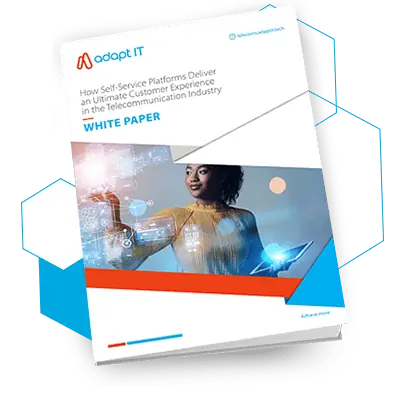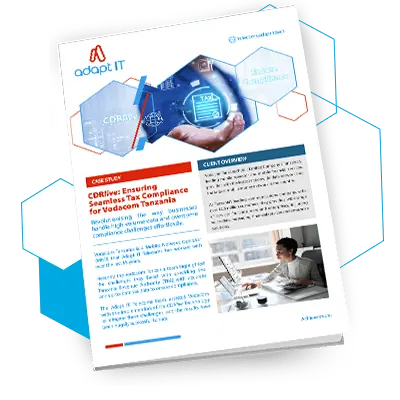Spam Calls are on the rise globally, with criminals using these calls to scam and defraud customers. Many have turned to Telcos to look at ways to increase security around spam calls and how this will be done. We examine this and analyse the role customer play in stopping criminal activity related to spam.
Table of Contents
ToggleThe negative impact of Spam Phone Calls
It is no secret that spam calls have become a regular occurrence for Telco customers. To understand the impact of these calls, we must understand what the term spam means.
In simple terms, spam refers to all unwanted and unsolicited communications. Typically, spam is directed to large numbers of users for the purposes of advertising, phishing, spreading malware, etc.
For many years this has been a way for companies to market and advertise products, but as Technology has advanced, criminals have caught onto this trend. The criminals will often use spam calls for phishing and spreading malware to defraud the person on the other end of the call. This activity aims to obtain something of value from the target so that they can be forced to pay the attacker or so that the attacker can take from them what they want.
Scam calls are often a source of fraud that have a significant impact on both Telcos and Customers. How big is this problem? The answer is enormous, especially when examining TrueCaller’s most recent report, which states that a staggering $39.5 billion USD* was lost to phone scams in America alone in 2022.
This is a significant problem, and customers are being put in a vulnerable position. Telcos are looking at different ways to manage the threat of spam and scam calls to protect their customers. The question that needs to be asked is, “Is it just the Telcos’ responsibility to solve this problem?”

Where does the responsibility lie?
From the above, it is clear that spam calls are becoming a significant issue. Many Telcos have turned to technology to minimise the impact of these kinds of calls on the consumer.
This includes advanced machine learning technologies which enable Telcos to develop advanced supervised and unsupervised models that would help to profile calls and messages to highlight any spam-related elements in real-time, while taking great care to ensure the protection of any personal information that may be attached to these messages or calls. Using this data, the Telco could make informative decisions allowing them to anticipate and take action against any criminal behaviour. Other technologies include signaling intelligence, real-time threat intelligence, and voice and SMS firewalls.
Although Telcos are looking at ways to minimise spam calls and their effects, a significant amount of responsibility sits with the consumer. Consumers must ensure they are not freely giving out information and valuable data. Customers often do not realise they are sharing their data when they download or register for an app, sign up for an online newsletter, etc. It is vital to read the data information policy and take responsibility for how your information is and will be utilised in the future. By minimising how many people have your information you minimise the chance of your data being lost to criminal activities like data breaches, which is often how criminals are gaining access to your telephone number to make scam calls.

The future of Spam Call prevention
Since spam calls and their link to criminal activity are a global problem, different regions are looking at other ways to reduce the number of these kinds of calls.
For example, in the United Kingdom, Telcos have been given three specific guidelines/ rules to follow about this: These include
- Making sure a number meets the UK’s 10- or 11-digit format
- Block calls from numbers that are on Ofcom’s Do Not Originate list
- Identify and block calls from abroad spoofing a UK caller ID
The aim of the above is to block fake numbers that criminals may use to protect customers further.
Other countries are looking at different privacy and information protection regulations to help combat the problem associated with spam calls as well as increased security to ensure data is not lost through a breach. For example, in South Africa, the addition of the Protection of Personal Information Act (POPIA) has put in place strict guidelines for direct marketing and advertising activities. Although spam calls are allowed, the customer does need to give content to receive that information but managing this remains a challenge for many.
Customer education will remain vital in preventing scam calls in the future. Customers should feel empowered to take their data protection into their own hands and ensure that their valuable information is kept safe and secure. The likelihood is that spam calls will continue, but as a customer you need to ensure that you do not give out any personal or important data that scammers can utilise to take advantage of you.
Conclusion
From the above, it is clear that spam calls often leave customers in a vulnerable position. Although many Telcos have implemented technologies to help reduce and track these kinds of calls, a significant responsibility still lies with the customer. Customers should be educated on how to protect their data and information adequately and should take charge of how and who is utilising their information while also ensuring they do not give out personal or data when communicated with. Telcos, customers and regulatory bodies need to work together to help curb these activities and protect valuable data and information.
Give Full Control To Your Corporate Customers
Learn how our Corporate Customer Self Service (CCSS) solution allows MNO’s and MVNO’s corporate customers to control their own contracts and alleviate unnecessary support queries in this free white paper

Experienced Software System Engineer with a demonstrated history of working in the information technology and services industry. Skilled in Technical Solution Design, Management and Large Scale System Integration and Architecture. Strong engineering professional with an Engineer’s Degree focused in Computer Engineering from University of Pretoria/Universiteit van Pretoria.





